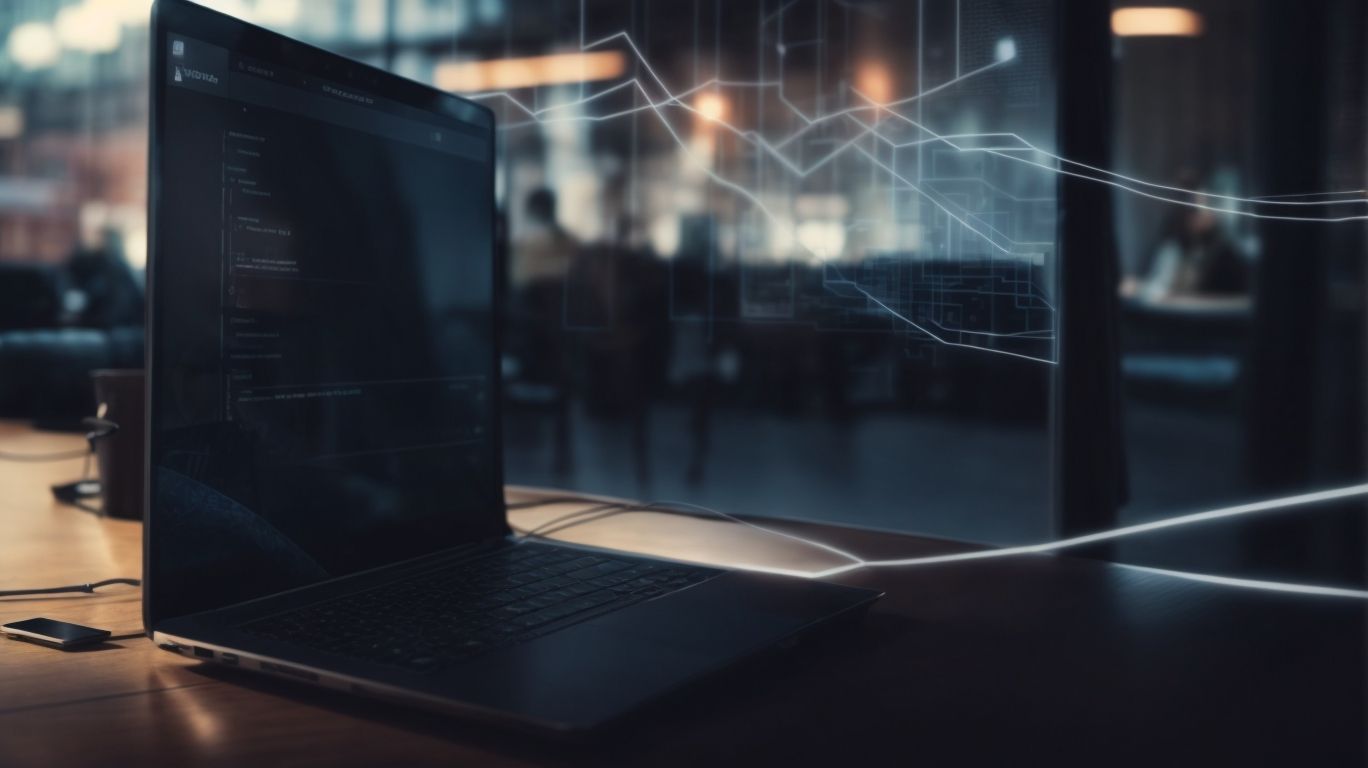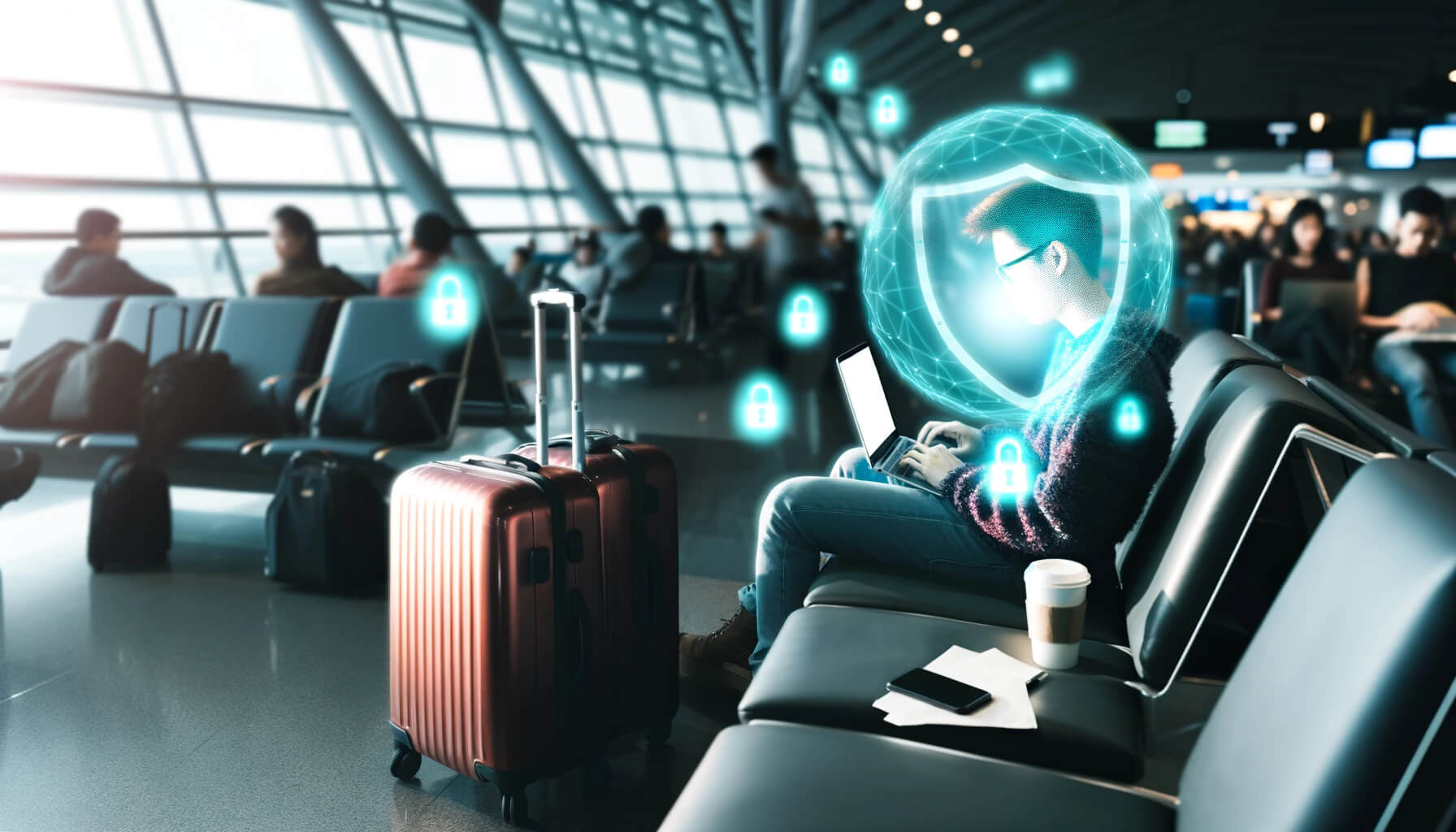In a world where public Wi-Fi networks are becoming increasingly common, it is essential to understand the risks associated with using them.
From hackers to data thieves, there are numerous dangers lurking on these seemingly convenient connections.
Find out the vulnerabilities of public Wi-Fi and get tips on how to safeguard your connection and what to do if you have already connected to an unsecured network.
Table of Contents
Key Takeaways:
Public Wi-Fi networks are vulnerable to hackers and pose risks to your personal information and devices. Safeguard your connection by using a VPN, avoiding sensitive information, enabling two-factor authentication, updating your devices, and turning off automatic Wi-Fi connections. If you have connected to an unsecured Wi-Fi network, change your passwords, monitor your accounts, consider using a credit card, and contact your bank or credit card company. Also, run a full virus scan on your device.
The Dangers of Public Wi-Fi
Public Wi-Fi poses significant risks to users’ security and privacy due to potential hacker threats and cybersecurity vulnerabilities.
When you connect to a public Wi-Fi network, you are essentially sharing the same connection with numerous other individuals, making it easier for cybercriminals to intercept your data. Hackers can exploit these open networks to eavesdrop on your online activities, steal sensitive information, or even gain unauthorized access to your devices. This could lead to identity theft, financial loss, and other serious implications for your online security.
What are the Risks of Using Public Wi-Fi?
The risks of using public Wi-Fi include data interception, insecure connections, and the potential exposure of sensitive information to cybercriminals.
When you connect to a public Wi-Fi network, your data can be intercepted by malicious actors who are also connected to the same network, potentially leading to unauthorized access to your personal or financial information. Encryption plays a crucial role in securing data transmitted over a network, but public Wi-Fi often lacks proper encryption protocols, leaving your data vulnerable.
The absence of secure connections puts your online accounts at risk, from social media platforms to financial services. Cybercriminals can exploit these unsecured networks to gain access to your usernames, passwords, and other sensitive credentials, compromising your accounts and privacy.
Why are Public Wi-Fi Networks Vulnerable?
Public Wi-Fi networks are vulnerable to cyberattacks and hacking due to their open nature, lack of encryption, and susceptibility to man-in-the-middle attacks.
When you connect to a public Wi-Fi network, your device’s data is often transmitted without encryption, making it easy for hackers to intercept sensitive information like login credentials or personal information. These unsecured connections create a prime opportunity for cybercriminals to execute man-in-the-middle attacks, where they position themselves between you and the network, capturing or altering your data without your knowledge. It is crucial to be cautious when accessing free Wi-Fi hotspots and consider using a VPN to encrypt your communication and protect your online activities.
How to Protect Your Connection on Public Wi-Fi
To safeguard your connection on public Wi-Fi, using a Virtual Private Network (VPN) is essential to establish secure and encrypted connections.
Not only does a VPN encrypt your data, but it also acts as a protective shield against potential cyber threats lurking on public networks. By routing your traffic through secure servers, a VPN ensures that your devices are shielded from hackers and malicious entities seeking to intercept sensitive information. This added layer of security not only safeguards your personal data but also preserves your online privacy by masking your IP address, making it challenging for cybercriminals to track your online activities. In today’s digital age, where the convenience of public Wi-Fi is ubiquitous, the use of a VPN is crucial to maintain the integrity and security of your online connections.
Use a Virtual Private Network (VPN)
Utilizing a Virtual Private Network (VPN) encrypts your data traffic and provides a secure connection when accessing the internet through public Wi-Fi networks.
When you connect to a VPN server, all your online activities, from browsing websites to sending emails, are encrypted, ensuring that your sensitive information remains secure. This encryption process scrambles your data into an unreadable format, making it nearly impossible for hackers or unauthorized parties to intercept and decipher. By masking your IP address, a VPN adds an extra layer of privacy, allowing you to browse anonymously. This way, your connection stays protected, shielding you from potential cyber threats and ensuring peace of mind while using public networks.
Avoid Accessing Sensitive Information
Avoid accessing sensitive personal information such as financial data or login credentials while connected to public Wi-Fi networks in public spaces to reduce the risks of data exposure.
Public Wi-Fi networks pose significant security threats due to the ease with which hackers can intercept data transmitted over these networks. When connected to public Wi-Fi, there is a heightened risk of unauthorized access to your personal information, making it essential to take precautions to protect your data.
One effective strategy is to use a Virtual Private Network (VPN) when accessing the internet on public Wi-Fi. A VPN creates a secure, encrypted connection that shields your data from prying eyes and potential cyber threats.
Another best practice is to avoid conducting sensitive transactions, such as online banking or shopping, while connected to public Wi-Fi networks. Opt for secure connections or your mobile data plan for such activities to minimize the risks associated with data interception.
Enable Two-Factor Authentication
Enhance your online security by enabling Two-Factor Authentication (2FA) for your accounts, adding an extra layer of protection to your connections and user identity.
Two-Factor Authentication is a powerful tool that combines something you know (like a password) with something you have (like a code from your phone) to keep your accounts safe. By requiring this additional verification step, 2FA significantly reduces the risk of unauthorized access, making it harder for cybercriminals to breach your accounts.
Implementing 2FA enhances user identity protection by ensuring that the person attempting to log in is indeed the legitimate account owner. This proactive approach to cybersecurity goes a long way in safeguarding your personal information and sensitive data from potential threats.
Keep Your Devices Updated
Regularly update your devices with the latest security patches and software updates to mitigate the risks of malware infections and potential cyberattacks by malicious actors.
Keeping your devices up to date not only ensures that your system runs smoothly but also plays a crucial role in enhancing cybersecurity. By frequently installing security patches, you significantly reduce the vulnerabilities that cybercriminals exploit to infiltrate your devices.
Staying updated minimizes the chances of falling victim to harmful malware attacks that could compromise your personal information or business data. With the ever-evolving nature of digital threats, it’s imperative to stay vigilant and prioritize regular updates as a proactive measure to safeguard your privacy and data from potential cyber risks.
Turn Off Automatic Wi-Fi Connections
Disable automatic Wi-Fi connections on your devices to prevent unintentional connections to unsecured networks and reduce the risks associated with insecure Wi-Fi connections.
Automatic Wi-Fi connections can expose your devices to various cybersecurity threats, such as hacking attempts or data interception. By disabling this feature, you have better control over when and where your devices connect to networks, ensuring a higher level of security.
It is essential to safeguard your connection by regularly reviewing and managing your list of saved networks to remove any outdated or unknown connections. Consider using a virtual private network (VPN) when connecting to public Wi-Fi to encrypt your data and further protect your devices from potential breaches.
What to Do If You Have Already Connected to an Unsecured Wi-Fi Network
If you have inadvertently connected to an unsecured public Wi-Fi network, take immediate steps to safeguard your information, devices, and connection from potential risks.
One of the first measures to implement is to disconnect from the unsecured network immediately to prevent any ongoing data exposure. Securing your device is crucial, so ensure your firewall and antivirus software are active and up to date. Avoid accessing sensitive information like passwords, financial data, or personal details while connected to the unsecured network. Check if your device has automatically connected to the network in the past and disable this feature to prevent future risks.
Change Your Passwords
Immediately change your passwords for online accounts if you suspect your security may have been compromised through an unsecured Wi-Fi connection.
Unauthorized access to sensitive information by a potential hacker can lead to a myriad of detrimental consequences, including financial loss, identity theft, and privacy breaches. It is crucial to act swiftly in changing your passwords as a proactive measure against these risks. By modifying your credentials across various online platforms, you create an additional layer of defense against potential intrusions. Remember to create strong, unique passwords for each account and consider implementing multi-factor authentication for enhanced security. Regularly updating your passwords helps safeguard your digital presence and ensures a safer online experience.
Monitor Your Accounts for Suspicious Activity
Regularly monitor your online accounts for any suspicious activity or unauthorized access that may have resulted from connecting to an unsecured Wi-Fi network.
When using public Wi-Fi in places like coffee shops, airports, or hotels, cybercriminals can intercept your data if the network is not secure.
To protect your sensitive information, consider using a virtual private network (VPN) that encrypts your connection and shields your data from prying eyes.
Enable two-factor authentication on your accounts to add an extra layer of security; this ensures that even if your password is compromised, the hacker would need a second verification factor to access your account.
Consider Using a Credit Card Instead of Debit Card
Opt for using a credit card rather than a debit card for online transactions following exposure to unsecured Wi-Fi networks to enhance financial data security and minimize risks.
When you use a credit card for online transactions post unsecured Wi-Fi exposure, it provides an additional layer of protection. Unlike debit cards, credit cards offer greater consumer protection against fraudulent charges. If there is unauthorized transactions, credit card issuers can investigate and potentially reverse the charges, safeguarding your financial data.
Credit cards often come with robust security measures such as EMV chips, tokenization, and fraud monitoring services that can detect suspicious activity. By utilizing a credit card, you can also build a positive credit history through responsible usage, which can be beneficial for future financial endeavors.
Contact Your Bank or Credit Card Company
Inform your bank or credit card company immediately if you suspect your financial information may have been compromised due to connecting to an unsecured Wi-Fi network.
In terms of protecting your financial security, swift action is key. Contacting your financial institution promptly can help prevent unauthorized access to your accounts and secure your personal data. Provide specific details about the incident and any transactions that seem suspicious. Your company may guide you on next steps, which could involve changing passwords, issuing a new credit card, or setting up additional security measures to safeguard your financial assets.
Run a Full Virus Scan on Your Device
Conduct a comprehensive virus scan on your device after connecting to an unsecured Wi-Fi network to detect and remove any malware threats that may have infiltrated your system.
This crucial step is essential in safeguarding your security and preventing cyberattacks that exploit vulnerabilities in your device’s defenses. By running a virus scan, you can identify malicious software like viruses, worms, and Trojans that could compromise your sensitive data and put your privacy at risk.
Malware can slow down your device, corrupt files, or even grant unauthorized access to cybercriminals. To ensure thorough protection, consider using reputable antivirus software with real-time scanning capabilities that proactively detects and eliminates threats. https://www.youtube.com/embed/_VkYLLs_qmk
Frequently Asked Questions
What are the risks associated with using public Wi-Fi?
Public Wi-Fi networks are often unsecured, making it easy for hackers to intercept sensitive information such as passwords, credit card numbers, and personal data. Additionally, these networks can be used to spread malware and viruses to your device.
How can I safeguard my connection while using public Wi-Fi?
To protect yourself while using public Wi-Fi, always use a VPN (Virtual Private Network) to encrypt your internet traffic. You should also avoid accessing sensitive information or making online purchases while connected to a public Wi-Fi network.
Are all public Wi-Fi networks equally dangerous?
No, some public Wi-Fi networks may have better security measures in place than others. However, it is always better to err on the side of caution and take necessary precautions to safeguard your connection.
What other safety measures should I take when using public Wi-Fi?
In addition to using a VPN, be sure to turn off file sharing and enable your device’s firewall. Also, avoid connecting to networks with suspicious or generic names, as these could be set up by hackers to lure unsuspecting users.
Can I trust websites using HTTPS while on public Wi-Fi?
While HTTPS websites provide an extra layer of security, they are not foolproof. Hackers can still intercept your data if you are connected to a compromised public Wi-Fi network. It is always best to use a VPN for maximum protection.
What are some alternative options for internet access instead of using public Wi-Fi?
If you are concerned about the security risks of public Wi-Fi, consider using your phone’s data plan or a personal hotspot. Another option is to use a portable Wi-Fi device or dongle for a secure and private internet connection.







